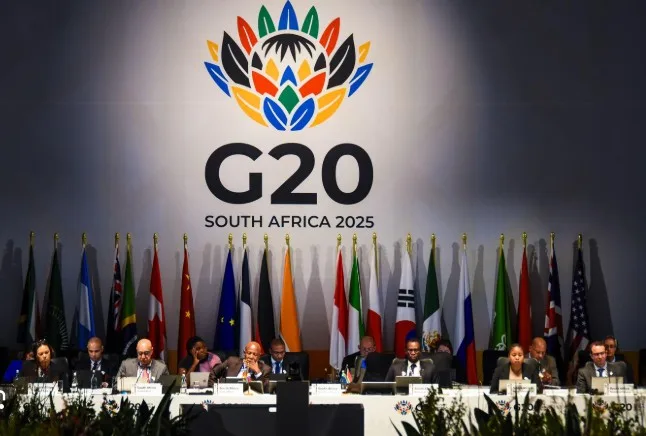Harare, (New Ziana)— The G20 Summit in South Africa concluded on Monday, marking what many leaders described as a historic moment for both the African continent and the wider Global South, the Zimbabwe government has said.
Under the banner “Solidarity, Equality, Sustainability,” the gathering placed inclusive growth, resilience, and sustainable development at the center of its agenda, signaling a shift toward a more equitable global order.
Posting on its National Development Strategy 1 (NDS 1) platform, the government said in a significant milestone, 42 countries and international organizations adopted a 122-point Leaders’ Declaration, even as the United States boycotted the summit.
It said the wide-ranging document reaffirmed commitments to multilateralism, urgent climate action, and reforms designed to promote global equity.
”The G20 Summit in South Africa has just wrapped up, and it’s being hailed as a historic moment for the continent and the Global South. The summit’s theme, “Solidarity, Equality, Sustainability,” focused on promoting inclusive growth, resilience, and sustainable development,” it said.
Despite political tensions arising from the absences of US President Donald Trump and Argentinian President Javier Milei, both of whom cited grievances related to South Africa’s domestic policies, the summit proceeded with a strong sense of unity among participating nations.
Climate change dominated discussions throughout the week and the declaration underscored the “serious and escalating threat of climate disruption,” praising countries that have set ambitious renewable energy targets.
Leaders called for greater financial and technical support for developing nations, particularly those most vulnerable to climate shocks while economic cooperation also featured prominently, with delegates pressing for fairer debt restructuring mechanisms and innovative financing tools to help low and middle-income countries manage economic pressures.
Calls to reform the global financial system grew louder, with many leaders arguing that existing structures disproportionately disadvantage the Global South.
South Africa used its presidency of the grouping to highlight the development needs of the continent, identifying infrastructure expansion, food security, industrialization, and access to reliable energy as key pillars for future prosperity, and several leaders noted that Africa’s priorities were not only heard but integrated into the final declaration, a rare and welcome shift.
The government said despite geopolitical rifts and high-profile absences, the summit showcased a collective determination to work together and many observers hailed South Africa’s leadership for steering productive dialogue as well as ensuring Africa’s voice resonated throughout the negotiations.
With its strong focus on inclusivity, sustainability, and partnership, the 2025 G20 Summit may well be remembered as a turning point for global cooperation—and a defining moment for Africa on the world stage.
New Ziana



